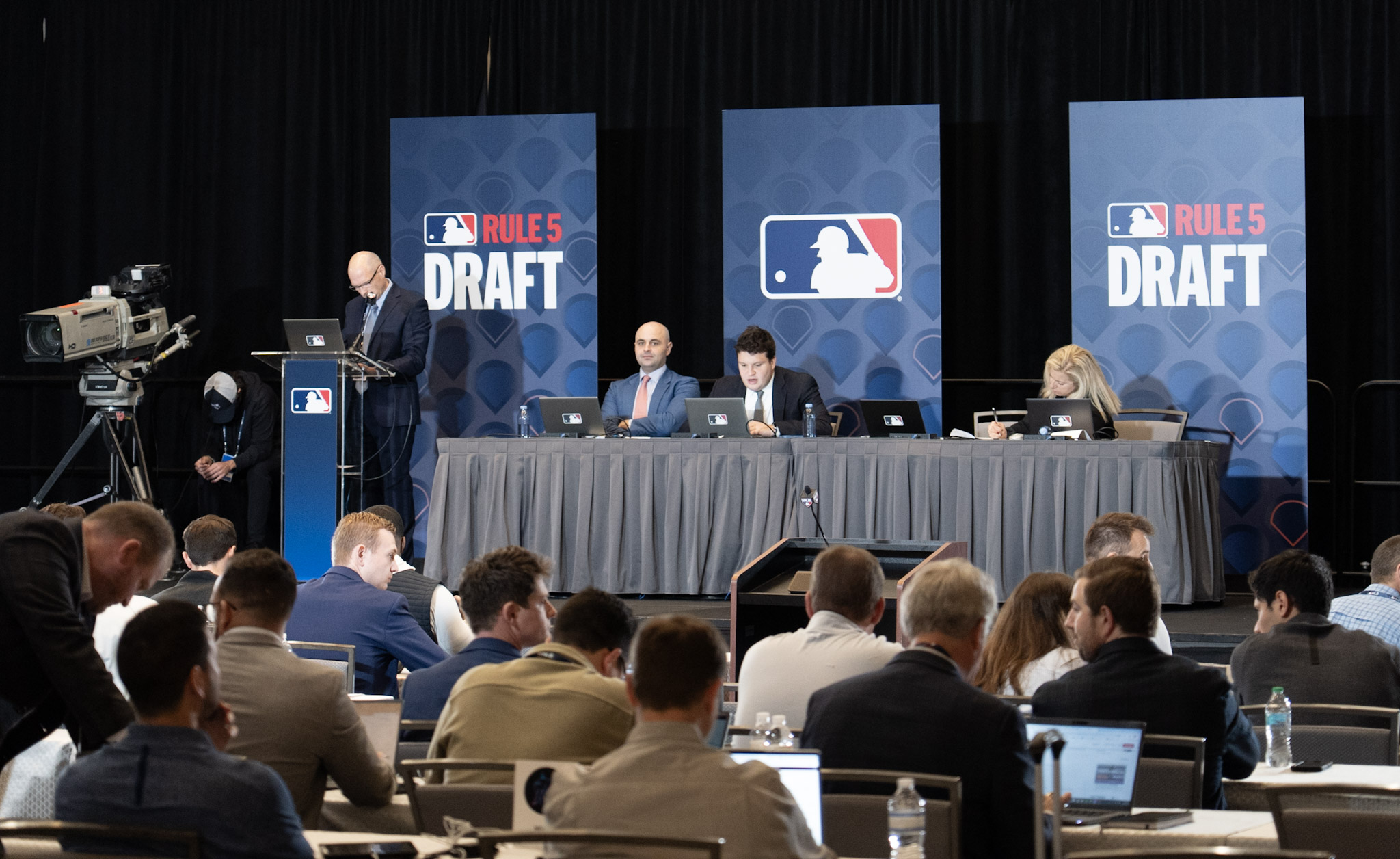There are a number of things that have been a little too tidy about the White Sox's 2020 season. A third place team according to projections, the White Sox were the first American League team to clinch, which seemed a little too simple. Before that, you had Dallas Keuchel publicly criticizing the team following a sleepy 5-1 loss, and the White Sox opened the next game with a 4-0 lead. They didn't lose another game to Detroit all season.
Baseball, a game composed of discrete zero-sum battles, doesn't often lend itself to such simple story arcs. The White Sox should know this better than anybody, because they're well acquainted with the forces of pressure and regression from previous seasons:
- 2016: Started the season 23-10, yet somehow lost 30 before they won 30.
- 2012: Led by three games with 15 to go, only to go 4-11 and lose the division by three games to Detroit.
- 2010: Trailed by 9½ games on June 8, led by 3½ games on July 20, trailed by 12 games on Sept. 21.
- 2008: Led Minnesota by 2½ games with seven to play before getting swept in the Metrodome, forcing the White Sox to win three games against three opponents in three days to reclaim the Central.
- 2005: Led the Central by 14½ games at the end of July before seeing it get trimmed down to 1½ games in late September.
- 2003: Led the Central by two games on Sept. 9, then the Jose Paniagua Game happened, and Twins won the division by four.
2000 was the last time the White Sox coasted into the postseason, but even, they did so with a pitching staff in tatters.
(This is why when asked if I'd trade the 2005 World Series for a run of Dodgers-like excellence in Monday's episode of the Sox Machine Podcast, I said 2005 without giving it thought. Imagine how irritating the curse talk would have gotten, especially when "lack of a pipeline" is the through-line for all these struggles.)
With the season being condensed into 60 games, I'd kinda been hoping that the reckoning-for-the-team's-shortcomings part would've been left on the cutting-room floor. Alas, the editors left that part in. The White Sox have lost four consecutive games, and their grip on the AL Central lead in the process. If that's not enough, the White Sox have to solve Zach Plesac in order to keep the Indians from closing within one game of second place.
It'd be a lot more infuriating if it didn't make total sense. The White Sox outpaced a lot of things this season, but logic was never one of them. Keep these three things in mind:
No. 1: The White Sox built their record on the weaknesses of weak teams.
The White Sox went 18-2 against the Tigers and Royals, which if a point some fans are tired of hearing. It's true that all the games count the same, but after the White Sox swept Detroit in the four-game series a week and a half ago, only quality teams remained on the calendar. And it's not even the idea of quality teams as it is quality teams with right-handed pitching.
The White Sox are still 13-0 against left-handed starters this season, but they were 13-0 on Sept. 5, when Lucas Giolito beat Kris Bubic. Tonight's game against Zach Plesac will be the 17th consecutive right-handed starter they've faced. The Cubs might have a couple of lefties to offer, depending on how they arrange their rotation for the final series, but when the postseason rolls around, it's back to righties, righties, righties, unless they somehow lineup with Oakland. Even then, the threat of Chris Bassitt's Ongoing Revenge looms.
No. 2: The Twins and Indians are built to torment the White Sox.
Minnesota has a deep, powerful lineup that doesn't give suspect starting pitching many breaks. Cleveland has a stable full of right-handed pitchers with excellent command, and can stack half a lineup of patient switch-hitters against a pitching staff that's short on lefties. The White Sox needed a Josh Donaldson ejection to even up that season series, but the Indians are pulling no such punches. If the White Sox's privilege of a better record was a first-round matchup with the Indians, I wouldn't have considered that a win at all.
No. 3: The White Sox risked a trade-off by setting up their pitching staff for the postseason.
If the White Sox wanted to push for the AL Central, they probably would have kept Lucas Giolito on his original schedule and returned Dallas Keuchel to the rotation as soon as the injured list allowed. Instead, they prioritized the postseason calendar by padding the calendar with Jonathan Stiever, Reynaldo López and Dylan Cease against Cincinnati. They lost two of three.
Regarding the bullpen, they did add Garrett Crochet to signal their intent to win now, but they also placed Evan Marshall on the injured list with the intent of having him back for the Cubs series. The lack of big innings from the White Sox lineup against those strong right-handed starters puts strain on the good relievers, or encourages Rick Renteria to take risks that go poorly (Gio González in the ninth, for instance).
With home-field advantage being negligible this season, it makes sense to have all the important players ready to go for the games that count. Of course, there's a chance that Giolito and Keuchel both lay an egg, and the White Sox beat the bubble home, but that'd preferable to laying an egg with Giolito and Keuchel unavailable and/or compromised.
* * * * * * * * *
Either way, the management of starters and relievers is secondary to the White Sox's massive struggles at the plate. The September splits for the lineup's fixtures are lopsided, with a clump of hitters who are meeting or surging past expectations ...
- José Abreu: .354/.407/.659
- Tim Anderson: .365/.389/.541
- Eloy Jiménez: .301/.333/506
- Yasmani Grandal: .241/.371/.466
- Nick Madrigal: .317/.358/.365
... and a counterproductive cluster that barely has a pulse:
- Edwin Encarnación: .172/.269/.397
- James McCann: .162/.200/.432
- Yoán Moncada: .167/.282/.258
- Nomar Mazara: .196/.237/.286
- Luis Robert: .086/.198/.129
Solving the White Sox's lumpy lineup was so much simpler when McCann looked like an upgrade over Encarnación, and Adam Engel seemed like an easy call over Mazara. It's a lot harder when McCann's scuffling while Grandal suffered a bruised hand, and Engel is now offers more hope than two starters.
Abreu tried to rally the troops with a Keuchel-like appeal through the media ...
"I think that starting today, you're going to start seeing a very different team, a better team than you saw before. It's going to be really important for us to take this moment as a big challenge, as a big learning process for us going forward to the postseason. … This is just another opportunity for us to get better and be more prepared for what is coming."
... but they ended up getting walked off for a second consecutive game.
It'd be fun to say Keuchel is the better leader, but he just has better timing. He got to make his call to arms during a series against the Tigers. Abreu had something to say before a Shane Bieber start, and the Sox are facing pitchers closer to Bieber-grade the rest of the way.
Overcoming this is not out of the cards, but Rick Renteria is mostly handcuffed. I'd like to see him bat Madrigal leadoff, or otherwise stack the five or six spots with the Sox's non-flaccid bats, just so we don't spend a late inning crossing fingers that Mazara or Robert survives his fourth at-bat so Madrigal can get his. I'd also like to see Marshall return and Colomé with no restrictions, along with a rested Codi Heuer and Garrett Crochet.
That's about all the talent Renteria can hope to have, put into a position where they can maybe help. After that, the only solution is the hardest one to achieve: playing better against competition that tends to make players play poorly.






